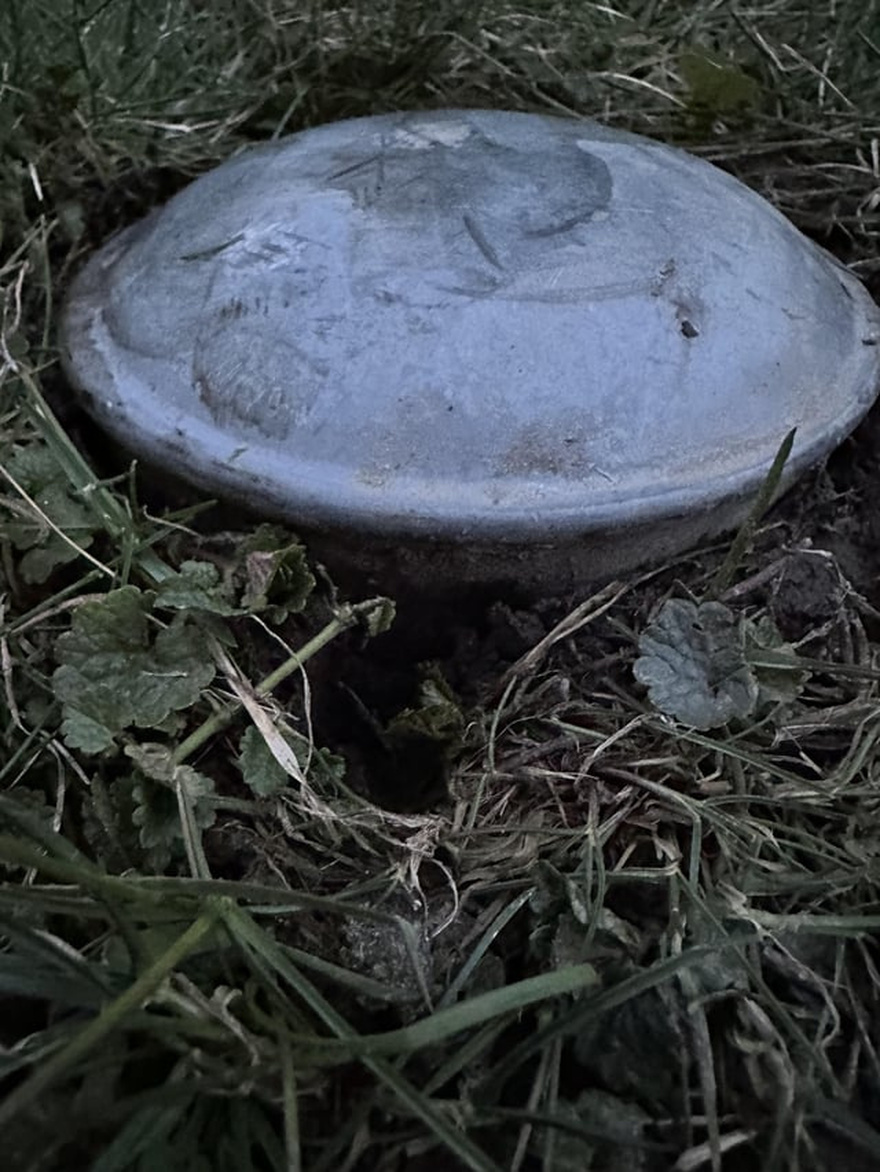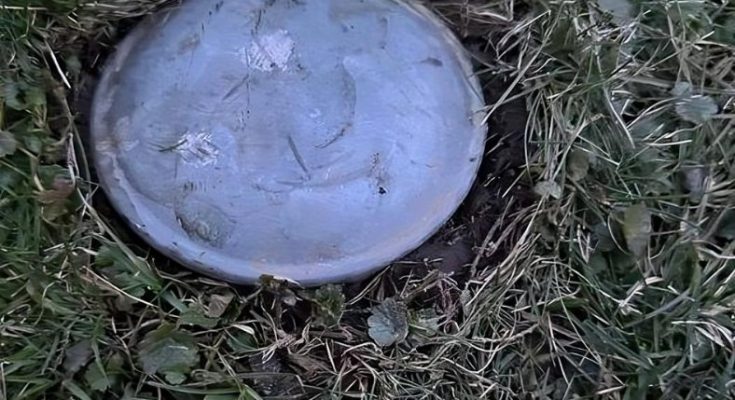Have you recently discovered a metal cap embedded in your backyard and wondered what it could be? You’re not alone.
Have you recently discovered a metal cap embedded in your backyard and wondered what it could be? You’re not alone. This mysterious cap has puzzled many homeowners across various regions, often leading to different interpretations. From water shutoff valves to old satellite dish mounts, this unassuming cap could serve a variety of purposes. In this article, we’ll explore some of the most common explanations for what this metal cap could be and what it signifies about your property’s history.
Could It Be a Sewer Cleanout or Water Shutoff Valve?

One of the most likely explanations for a metal cap in your yard is that it’s a sewer cleanout or a water shutoff valve. If you have city water or sewer lines, this cap could be part of the infrastructure that connects your home to the main system. Here’s what you need to know:
Sewer Cleanout: This cap could be the top of an access pipe for your home’s sewer line. Sewer cleanouts are used by plumbers to clear blockages or inspect the sewer line for issues. They are often located in backyards, driveways, or along the side of homes.
Water Shutoff Valve: If your home is connected to a municipal water supply, this cap could mark the location of the main water shutoff valve. This valve is crucial for turning off the water supply in emergencies or during repairs.
If you’re unsure whether the cap relates to your sewer or water line, check your water meter or call your local utility provider for more information. Knowing the location of these features can be important for emergency preparedness.
Is It Related to a Sump Pump or Drainage System?
Another possibility is that the cap could be associated with a sump pump or drainage system. Depending on your property’s design, a sump pump may be necessary to prevent flooding by directing water away from the foundation. Some tell-tale signs include:
Proximity to the House: If the cap is located close to your home’s foundation, it could be part of an underground drainage system meant to divert water away from the building. In some cases, it may connect to a sump pump that collects groundwater and pumps it outside.
Basement or Crawlspace: Homes with basements or crawlspaces are more likely to have drainage systems in place to prevent water buildup. The cap may serve as an access point for maintenance or cleaning.
If the cap does indeed connect to a sump pump or drainage line, you might want to have a professional inspect it to ensure everything is working properly.
Could It Be an Old Fence Post or Satellite Dish Mount?
Sometimes, the simplest explanation is the most accurate. This metal cap could be nothing more than a remnant of an old fence post or a satellite dish mount. Here’s how to identify these possibilities:
Old Chain Link Fence: If your neighborhood has older properties, there’s a chance that the metal cap is the cover of a rusted fence post that was cut off at ground level. Instead of removing the post entirely, someone may have simply capped it off to prevent injuries or water intrusion.
Satellite Dish Mount: In the 1980s and 1990s, many homes had large satellite dishes installed in backyards. These dishes required sturdy metal posts for support. When the dishes were removed, homeowners often left the posts in place, capping them to maintain safety.
If you suspect the cap is related to a fence or satellite dish, look for additional clues like remnants of fencing or other posts nearby.
Is It a Vent for an Underground Tank?
In some cases, metal caps in yards cover vents for underground storage tanks, which were once used to store heating oil, propane, or other fuels. Although many of these tanks have been decommissioned, the vent caps may remain. Here’s how to identify this scenario:
Check for Historical Records: Visit your local town hall or building department to find out if your property ever had an underground storage tank. This information is often recorded in old property deeds or inspection reports.
Vent Placement: These vents are typically located in areas with easy access for maintenance, so the cap’s location could be a clue. If you suspect it’s connected to an old tank, you may want to consult a professional for an inspection, as abandoned tanks can pose environmental hazards.
Is It Part of a Sprinkler System or Termite Bait Station?
A less common explanation is that the cap could be part of a sprinkler system or a termite bait station:
Sprinkler System: Some sprinkler systems have caps that cover access points for maintenance or repair. If you notice other similar caps in a line across your yard, it’s likely part of an irrigation system.
Termite Bait Stations: Termite control companies often install bait stations around homes to monitor and eliminate termite activity. These stations are typically spaced about 15–20 feet apart and have removable caps. If you find multiple caps around your yard, consider having a pest control company inspect them.
Could It Be a Survey Marker or Property Boundary?
In some cases, the metal cap could be a survey marker indicating a property boundary:
Old Survey Markers: Surveyors often use metal pipes or rebar as markers for property corners. Over time, these markers can get capped to protect them from weathering or damage.
Property Corners: If the cap is located near the edge of your property, it’s likely marking a boundary point. This could be helpful if you’re planning landscaping or construction projects.
If you suspect the cap is a survey marker, consult a professional surveyor to verify property boundaries.
Conclusion
The metal cap in your yard could serve a variety of purposes, from marking a sewer cleanout or water shutoff valve to being a remnant of an old fence post or satellite dish mount. It might also be connected to a sump pump, drainage system, sprinkler system, or even a survey marker. To determine its exact purpose, consider its location, nearby features, and the history of your property. In some cases, consulting a professional—whether a plumber, surveyor, or pest control expert—can provide clarity and ensure your property is safe and well-maintained. Whatever it is, this mysterious cap holds a small but intriguing piece of your home’s story!



